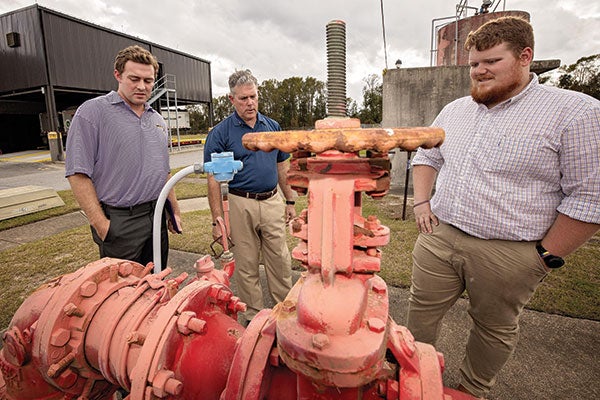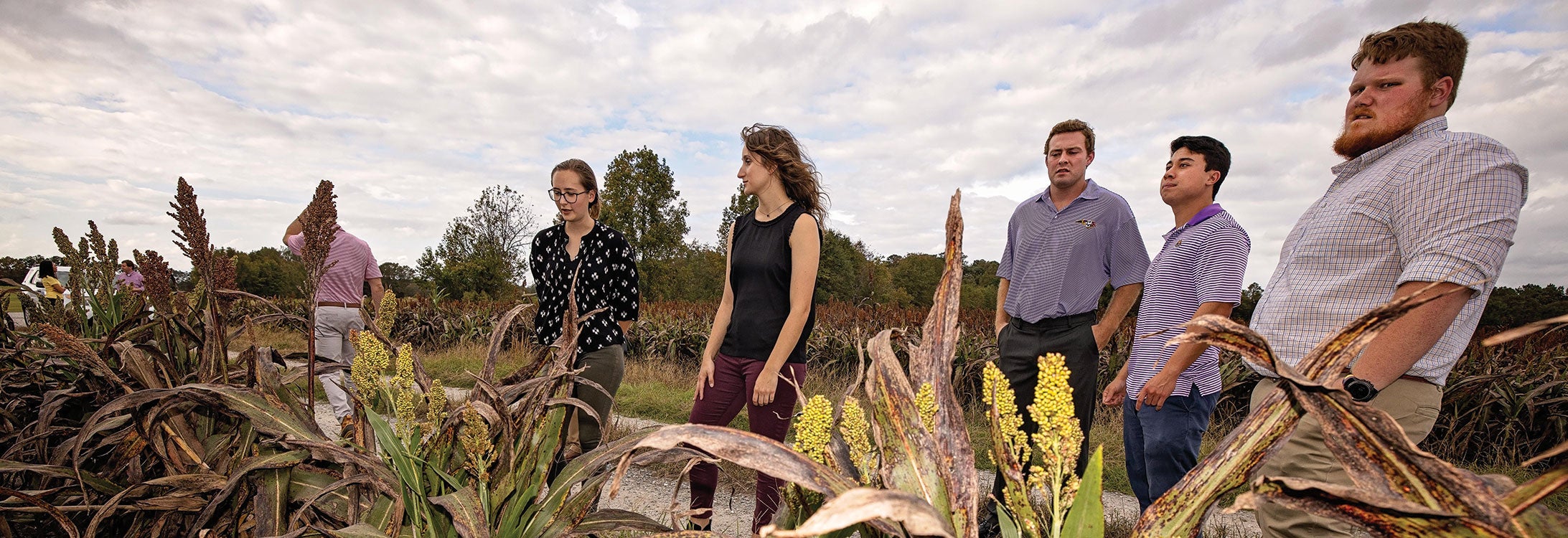Engineering students work on wastewater project with Greenville Utilities
Holly Whitmyer was among seven students last fall and this spring tasked with a real-world project that could help the environment as well as the Greenville Utilities Commission and its customers.

Student Morgan Ensley, Jason Manning, superintendent of the GUC treatment plant, and student Dawson Reese look over equipment at the plant.
“It’s a real-life project. It’s not something we do in the classroom,” said Whitmyer, a senior environmental engineering major. “We’re actually out here doing it.”
For Jason Manning ’88, superintendent of GUC’s wastewater treatment plant, it’s all about the math. The plant has a capacity of 17.5 million gallons of effluent a day. And as it gets closer to that capacity, a solution is needed to serve future customers. A plant expansion or new construction that could add 10 million gallons a day could cost $150 million, a price taxpayers and customers would have to pay.
The students are determining the feasibility of taking between 1 million and 2 million gallons a day and using that as part of a waterfowl impoundment pond on GUC property that would create habitat for birds and delay plant expansion. Such a plan could also help replenish shallow water aquifers.
Taking 1 million or 2 million gallons of capacity could clear the way for industrial development, with the plant having extra capacity to handle wastewater from a potential large employer.
“The longer we can put that expansion off, extend the lifecycle of what we have, fully realize the value of what we’ve already purchased, that will be better for everybody,” Manning said.
Randall Etheridge, assistant professor in the Department of Engineering, is the team’s faculty co-advisor on the project. Students, he said, “get to tackle a real-world problem with all the constraints that you face in the real world like finances, trying to fit things into property boundaries and permitting. It’s real-world problems. That’s the best way to describe it.”
Natasha Bell, assistant professor of engineering, is the other faculty co-advisor on the project.
Manning said the capstone project is the second in which ECU students have worked on GUC’s wastewater collection system. The first involved an engineering analysis of maintenance on remote pump stations.
“These students are working on things that I couldn’t afford in my budget to go out and hire a consulting engineering firm,” Manning said. “And what I’ve found is the capstone teams are much more responsive to our needs versus a brick and mortar engineering firm.
